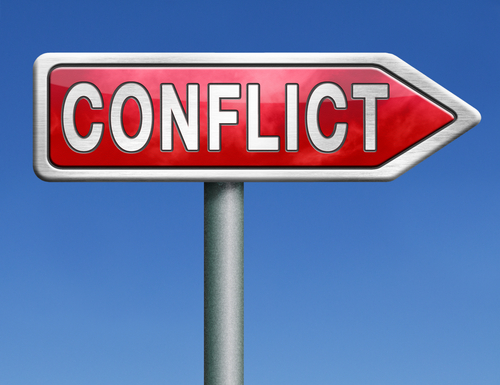Russia and the United States exchanged threats Wednesday at a tense U.N. Security Council meeting over the Ukraine crisis, with Moscow’s envoy warning that the U.S. ambassador’s “insults” are jeopardizing Moscow’s willingness to co-operate with Washington on other diplomatic matters.
It was the council’s eighth meeting in less than three weeks on Ukraine, a show of determination by Western powers to highlight Russia’s diplomatic isolation over the Crimean Peninsula—even if the council is powerless to act because of Moscow’s veto power as a permanent council member.
The meeting came as U.N. Secretary-General Ban Ki-moon left for Russia and Ukraine in a bid to seek a diplomatic way out of the crisis. Ban will meet with President Vladimir Putin and other Russian officials in Moscow on Thursday and travel to Kyiv on Friday for talks with Ukraine’s acting president and prime minister, the U.N. said.
“He’s made clear we’re at a crossroads and … the focus must be to engage direct dialogue between Moscow and Kyiv aimed at agreeing on specific measures that will pave the way towards a diplomatic solution,” U.N. deputy spokesman Farhan Haq said.
At the council, Russian Ambassador Vitaly Churkin was once again alone in defending his country’s actions in Crimea.
He began his speech by celebrating the treaty signed a day earlier by Russian President Vladimir Putin declaring Crimea part of Russia, saying it honoured the will of the Crimean people and complied with international law.
“Yesterday, something truly historic happened,” Churkin declared. “A historic injustice has been righted.”
U.S. Ambassador Samantha Power said the United States rejects “Russia’s military intervention and land grab in Crimea.”
She warned that the U.S. and its allies, who imposed sanctions on Russia two days ago, “are prepared to take additional steps if Russian aggression or Russian provocations continue.”
Power also compared Russia’s takeover of Crimea to theft. “A thief can steal property, but that does not confer the right of ownership on the thief,” she said.
The Russian ambassador shot back: “It is simply unacceptable to listen to these insults addressed to our country.”
He added, “If the delegation of the United States of America expects our co-operation in the Security Council on other issues, then Mrs. Power must understand this quite clearly.” By then, Power had left the meeting to her deputy.
Churkin did not elaborate. The United States and Russia are the key players in efforts to establish peace talks in Syria, and also are involved in talks over Iran’s nuclear program.
The council also heard a briefing from Ivan Simonovic, assistant U.N. secretary-general for human rights, who expressed particular concern over the security of Tatars and other ethnic minorities in Crimea.
He highlighted the disappearance of a Crimean Tatar activist after participating in a March 3 protest. Simonovic said the activist was found dead March 16 and his body bore marks of “mistreatment.”
Simonovic announced that the United Nations is deploying a 34-member human rights monitoring mission to Ukraine, scheduled to be in place by Friday.
He said he was not able visit Crimea because the authorities there refused to receive his mission or ensure its security until it was too late. But he said he spoke to representatives of displaced Tatars and victims of arbitrary arrests, torture and other human rights violations.
Churkin dismissed Simonovic’s assessment as “one-sided.”
He also blamed snipers—not Russian soldiers—for the killing of a Ukrainian soldier and an unarmed member of a local self-defence brigade in Crimea on Tuesday, saying the two were deliberately targeted to provoke confrontation.
Associated Press writer Edith M. Lederer contributed to this story.
